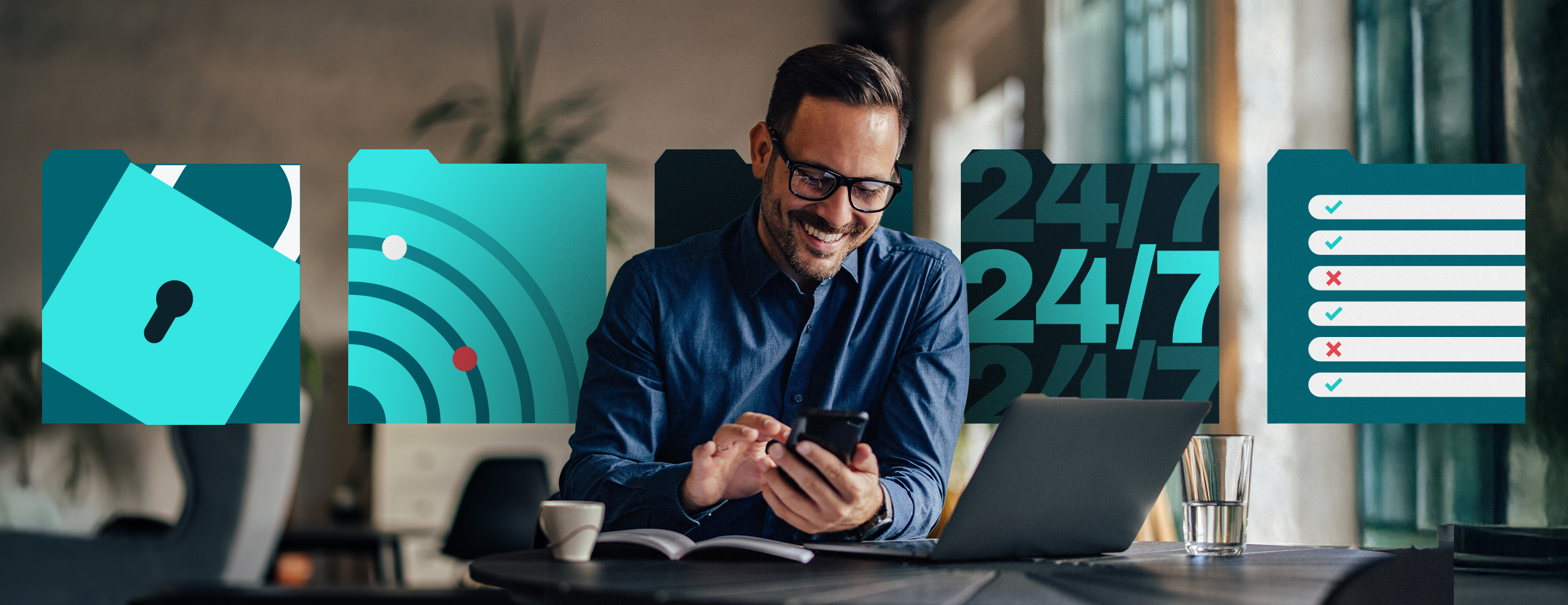Is your file transfer vendor ready to face zero-day vulnerability exploits?

Zero-day attacks are among the most formidable threats facing file transfer solutions today. These exploit undiscovered software vulnerabilities, often with devastating consequences.
While security researchers may uncover these weaknesses and notify vendors, malicious actors typically exploit them without warning. The longer a zero-day vulnerability remains undetected, the greater the risk of significant damage. A proactive and resilient managed file transfer (MFT) software vendor is your first line of defense.
But how do you know if the vendor you’re using or evaluating is prepared for a major incident?
Here are five key indicators of their preparedness.
Signs your MFT provider is equipped to handle a zero-day breach
1. Anticipatory vulnerability management
Mitigating zero-day vulnerabilities requires a proactive approach to identifying and addressing potential weaknesses. Leading vendors employ advanced security testing methodologies, such as:
- Penetration testing (PEN): This simulates real-world cyberattacks to uncover potential vulnerabilities. While it cannot directly identify zero-day issues, PEN testing helps highlight exploitable weaknesses.
- Static Application Security Testing (SAST): SAST analyzes source code for vulnerabilities, such as insecure configurations or weak cryptographic practices, reducing the likelihood of exploitable security flaws.
- Software Composition Analysis (SCA): This is intended to evaluate third-party libraries and components to detect vulnerabilities in dependencies, minimizing risks from insecure external code.
- Dynamic Application Security Testing (DAST): This is for testing live apps for runtime vulnerabilities and misconfigurations that could enable zero-day exploits.
2. Rigorous security certifications
Certifications are a vital benchmark of a vendor’s commitment to security and an indication of compliance with various industry and regional regulations. To achieve these certifications, vendors must implement robust security controls and undergo thorough evaluations. However, not all certifications carry equal weight. Look for those issued by industry-recognized authorities, such as:
- ISO 27001: Issued by the International Organization for Standardization (ISO), this validates comprehensive information security management practices.
- SOC 2: This certification acknowledges security, availability, confidentiality and privacy controls and is issued by the American Institute of Certified Public Accountants (AICPA).
- CSA STAR: The Cloud Security Alliance (CSA) offers this certification to vendors with security and privacy measures that align with best practices.
These demonstrate that your vendor has met stringent standards and is committed to maintaining a secure file transfer environment.
3. Independent security audits
Even the most diligent vendors benefit from third-party evaluations. Third-party security audits provide an objective assessment of a vendor’s security controls and can identify gaps overlooked in internal reviews. These audits are particularly crucial for maintaining an unbiased view of the vendor’s overall security posture.
Despite stringent measures, no system is entirely immune to zero-day attacks. Therefore, vendors must focus not only on prevention but also on preparedness and response.
4. ‘Round-the-clock technical support
Zero-day threats can strike without warning, often outside regular business hours. Vendors offering 24/7 technical support ensure that any suspicious activity is promptly addressed.
Their teams can:
- Evaluate unusual behavior to determine whether it’s a threat.
- Escalate confirmed vulnerabilities to cybersecurity specialists for immediate action.
- Notify clients and assist in applying security patches as they become available.
This rapid incident response capability is vital for minimizing downtime and mitigating potential damage.
5. Comprehensive response plans
A robust zero-day response plan is critical for minimizing the impact of an exploit. Leading MFT providers, such as JSCAPE by Redwood, implement well-defined, real-time response strategies that activate as soon as a vulnerability is identified.
These plans typically include:
- Timely patch deployment for swift development and distribution of software updates.
- Transparent communication to keep clients informed throughout the process.
- Team mobilization to coordinate internal and external resources to address the threat efficiently.
Such measures provide peace of mind and enable businesses to implement protective actions while awaiting a permanent fix.
Confidence is key
Choosing an MFT provider capable of addressing zero-day vulnerabilities is not optional, given the sophistication of threats we see today. You deserve to have confidence that your vendor will act swiftly in a crisis — confidence that their tools and teams will keep your operations running smoothly by acting on threat intelligence right away.
This level of assurance comes from thorough evaluations and transparent partnerships. Ask potential vendors about their track records, request case studies and don’t hesitate to test their support services. Those that take a zero-trust approach and prioritize security through certifications, proactive practices, third-party audits, 24/7 support and comprehensive response plans stand out as reliable partners in safeguarding your sensitive data.
To assess whether it’s time to search for a new MFT provider offering the functionality to protect you from costly data breaches, download this free guide.
About The Author

Max Schultz
Max Schultz is an enterprise software executive, advisor and investor with experience across DevOps, AdTech and Infrastructure companies ranging from startups to the F500. His executive tenures have helped create $2+ billion of enterprise value via strategic exits and private equity recapitalizations. His M&A experience has led to the celebrated retirement of three distinct company founders who have trusted their life's work to carry forward under his leadership, and world-class value creation for investors. Startups under his advisory have secured $50M+ in venture funding.
As Group General Manager at Redwood, Max leads both the Managed File Transfer (MFT) and Business Solutions (BS) business units - which house the JSCAPE, Cerberus, Finance Automation and Report2Web product lines. He is also responsible for Redwood’s strategic M&A initiatives, where he led the acquisition of Cerberus in 2023.
Prior to joining Redwood, Max held various senior leadership roles in sales, global customer success, and regional management at Test IO, a private equity-backed leader in software quality assurance. After helping lead Test IO’s sale to NYSE: EPAM in 2019 from the General Manager post, he was appointed CEO in 2022.
He holds a B.A. in Economics from the University of Southern California.